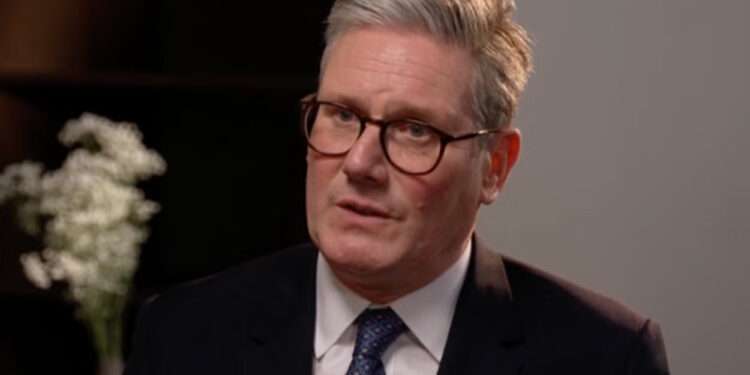The UK government has made clear it will only move forward with recognising a Palestinian state if Israel commits to a ceasefire, halts annexation in the West Bank, allows significantly more aid into Gaza, and joins a long-term peace process, all within the next two months.
Prime Minister Keir Starmer’s office outlined the conditions on Monday, signaling a shift in Britain’s position amid growing global support for a two-state solution.
While Starmer has been vocal about support for Palestinian statehood, his government has made it clear that recognition will not proceed unconditionally. In a press briefing, the prime minister’s spokesperson refused eight times to clarify whether the recognition would be contingent upon Hamas no longer being in power or the release of hostages currently held in Gaza.
This ambiguity has sparked criticism from various quarters, including Labour MPs, advocacy groups, and families of British hostages. Critics argue that such a move could be interpreted as a reward to Hamas, which was responsible for the October 7 attack on Israel.
A senior figure from Hamas, Ghazi Hamad, recently claimed that growing international support for Palestinian statehood was “one of the fruits of 7 October”. This statement only intensified concerns among UK citizens affected by the ongoing crisis.
Responding to those concerns, the prime minister’s spokesperson stated: “The PM is clear that on 7 October, Hamas committed the worst act of terror in Israel’s history. That horror has continued since then.”
“As the foreign secretary said over the weekend, Hamas are rightly pariahs who can have no role in Gaza’s future. There is a diplomatic consensus on that.”
Prime Minister’s spokesperson
However, concerning whether recognition was directly tied to Hamas’s ousting or the hostages’ release, the spokesperson pointed to the upcoming United Nations General Assembly meeting in September, where a formal decision would be made. He explained that the judgment would rely on “an assessment of how far the parties have met the steps we have set out. No one side will have veto on recognition through their actions or inactions.”

Aid Access, Ceasefire Central To UK Stance
The UK government is focusing heavily on improving humanitarian conditions in Gaza. Starmer has stated that the entry of at least 500 aid trucks per day into Gaza is essential. “Our focus is on the immediate situation on the ground, getting more aid in to end the suffering in Gaza and supporting a ceasefire and a long-term peace,” said the spokesperson, reiterating the UK’s support for international mediation efforts led by the U.S., Egypt, and Qatar.
The Labour leader had previously indicated his support for recognising Palestine “as a contribution to a peace process,” but last week’s statement presented a more immediate framework. “With that solution now under threat, this is the moment to act,” Starmer declared during a press conference last Tuesday.
His announcement comes after consultations with European allies. French President Emmanuel Macron initially called for recognition in April, and Canada has expressed similar support, conditional on reform efforts within the Palestinian Authority.
Despite these developments, legal representatives of British hostage families remain critical. Adam Rose, who acts on behalf of affected families, questioned the logic behind the policy: “Why would Hamas agree to a ceasefire if it knew that to do so would make British recognition of Palestine less likely?”
As the situation continues to evolve, the UK walks a fine line, pushing for a durable peace while navigating both domestic pressure and a volatile diplomatic landscape. Whether Starmer’s conditions will bring progress toward a two-state solution or deepen political tensions remains to be seen in the months ahead.
READ ALSO: Cocoa Farmers Reject Price Hike, Accuse COCOBOD of Betrayal



















